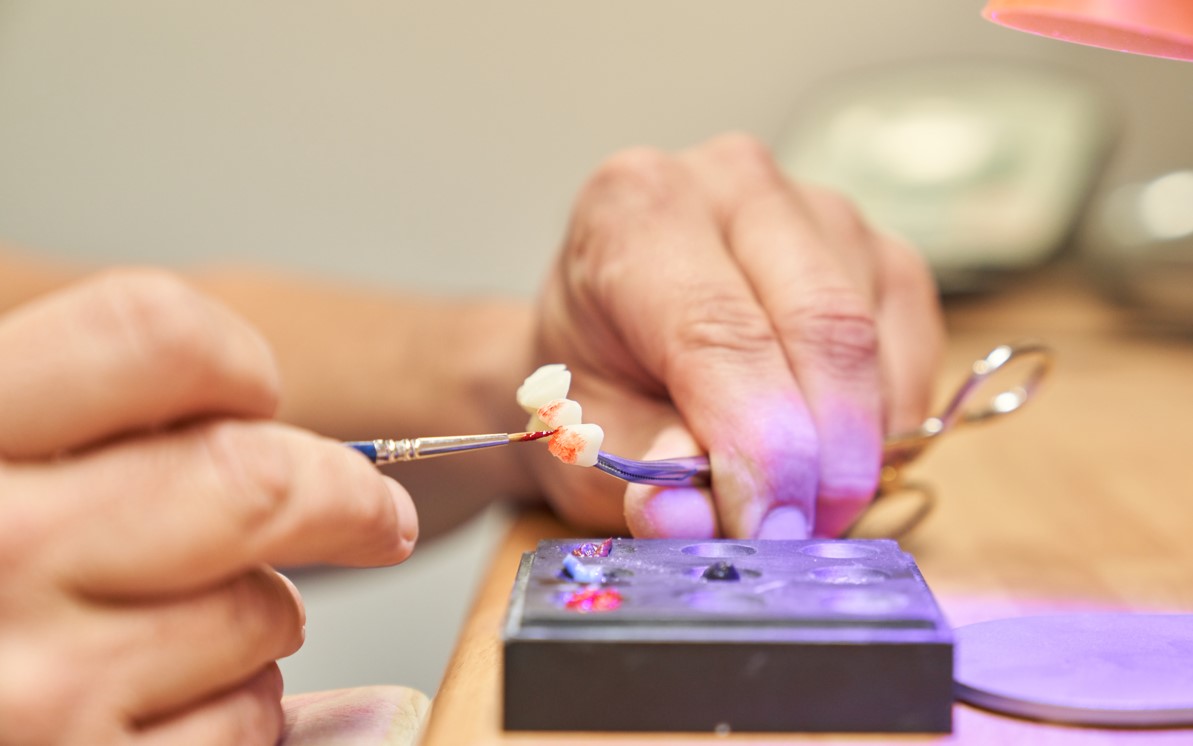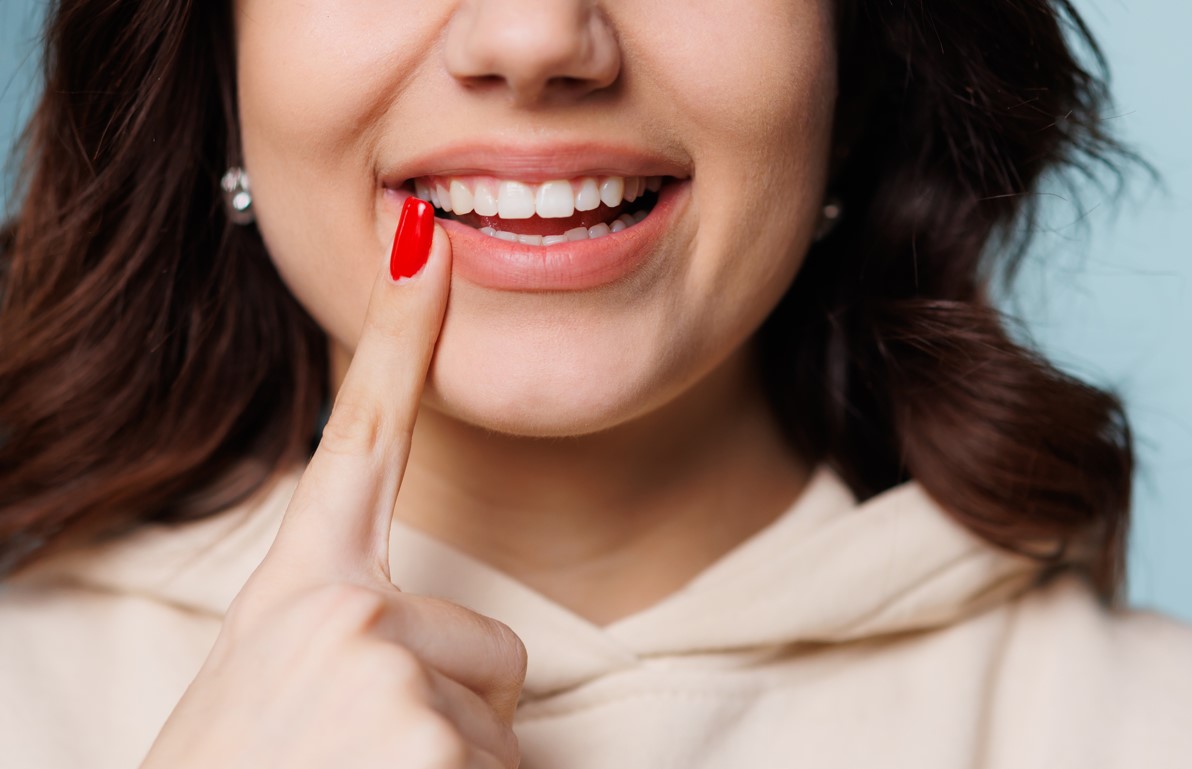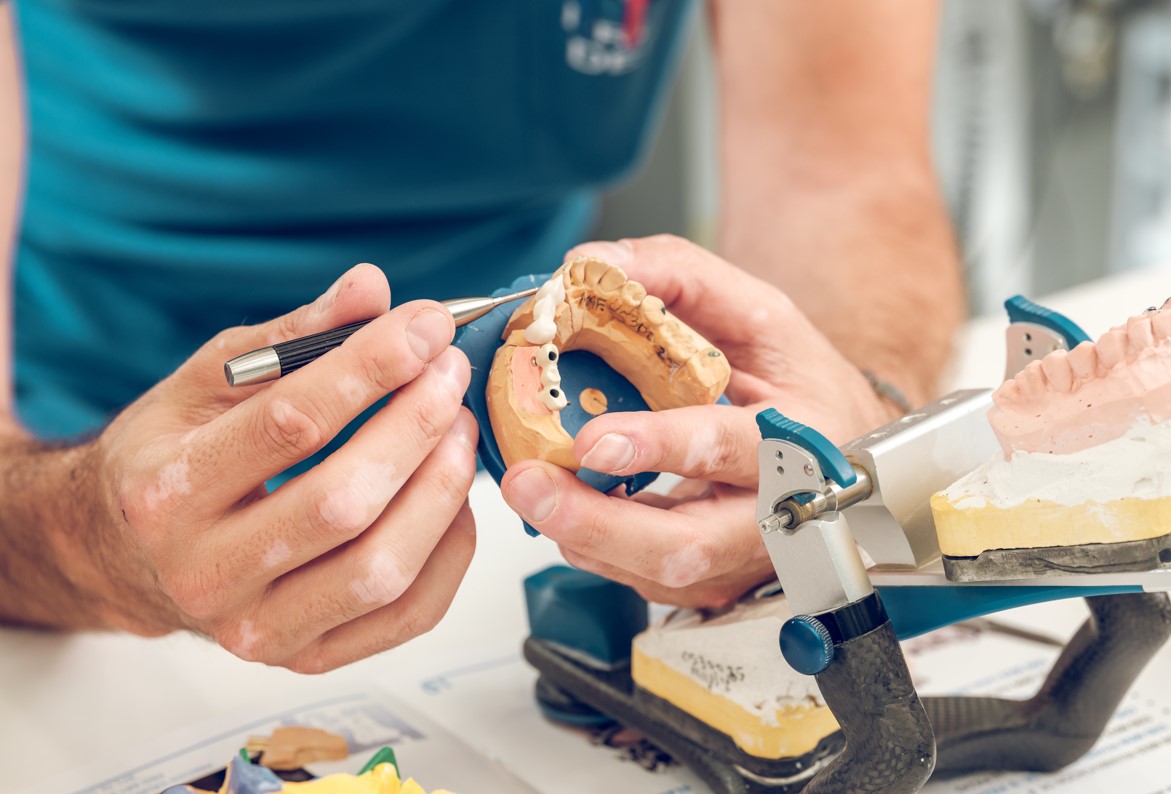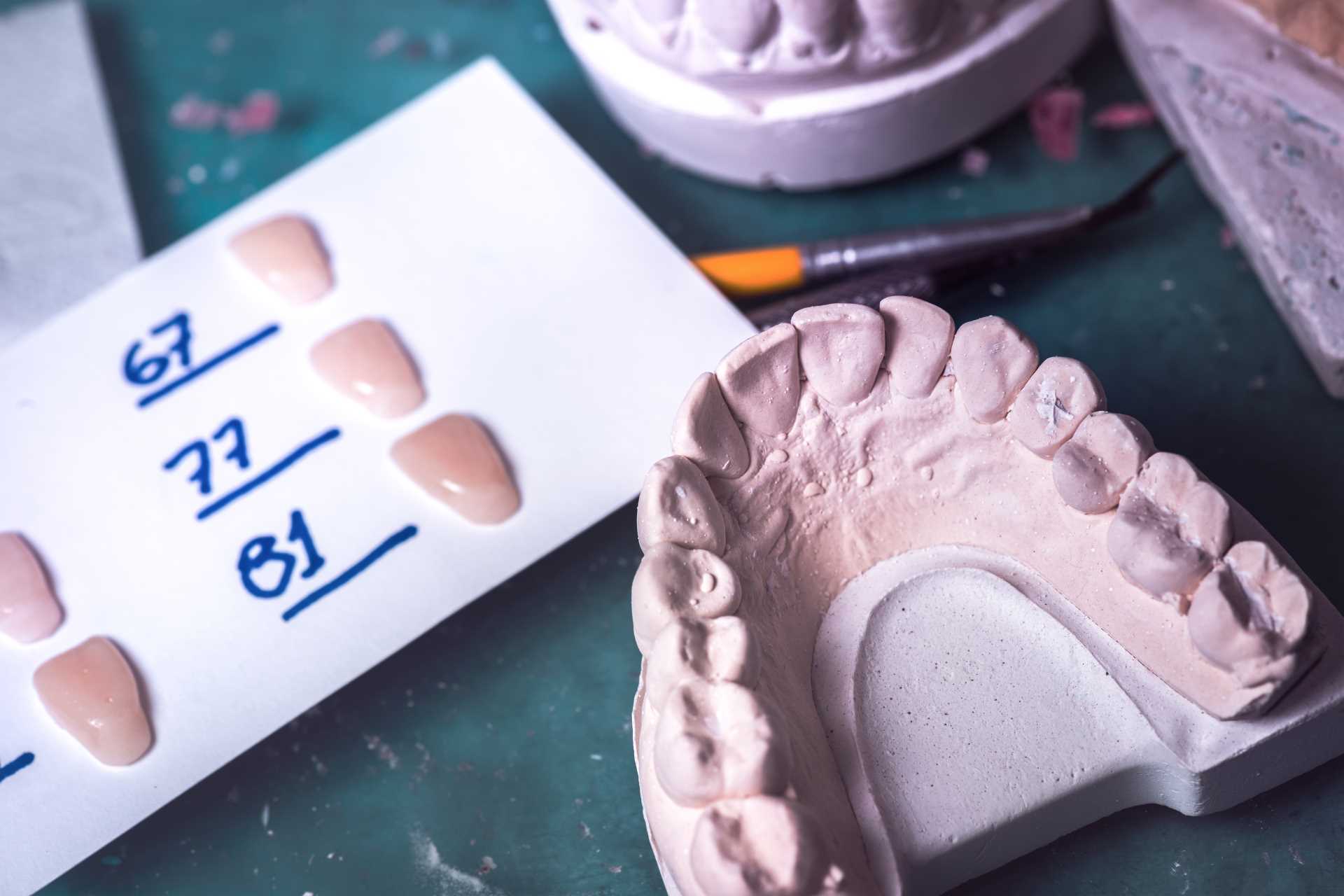Different Types of Partial Dentures
Partial Dentures are often the best option for many patients that are missing one or more teeth. Dentures have been replacing human teeth for thousands of years and denture fabrication technology has come a long way since the earliest known dentures of 2500BC.
Over time dentures have evolved from using teeth from animals, wood, porcelain and vulcanite to how we know them today: cast metal, acrylic, and polymer resins. With the coming of the 21st century we have seen a significant shift in the way we fabricate dentures and the future of denture technology will have a direct impact on the look, feel, and overall comfort of dentures of the future. Digital dentures and improvements in material technology have revolutionised the fabrication process of partial dentures. Partial dentures are affordable, natural looking, offer stronger teeth, return full functionality to your mouth and best of all you can get your full smile back; But with so many different types of partial dentures on the market the question remains ‘Which type of partial denture will be right for me?’ (You may also be interested in reading our Ultimate Guide to All of Different Types of Dentures).
The Different Types of Partial Dentures
Choosing the right partial denture will often come down to a patient’s individual circumstances. Your dental prosthetist will carefully assess your options and overall health to determine your suitability for different types of partial dentures taking into account several factors including:
- Appearance
- Oral Health and teeth structure
- Feel, Grip and Stability
- Oral sensitivity and allergic reactions
- Financial considerations
- Dexterity and control of patient.
- Support of remaining teeth
Cast Metal Partial Denture
The cast metal partial denture is one of the more common types of partial denture and provides high-quality replacement teeth on a rigid frame. Fabricated using ultra-thin and light cobalt chromium alloy they offer greater strength and stability and are a good permanent solution that can last many years with proper care.
Advantages
- Minimal irritation and discomfort due to the lightweight material used in the fabrication process.
- The rigid frame covers less soft tissue in your mouth which improves overall dental health, and increases sensation and taste while eating.
- Increased comfort due to an overall better fit as the dentures can be more accurately contoured to your mouth.
- A more supportive fit as cast metal dentures often have rest seats or clasps to keep them in place.
Disadvantages
- For patients who struggle with the fine motor skills necessary to insert their partial dentures, the metal clasps on cast metal dentures often making inserting them prohibitively difficult.
- The alloy used in the fabrication of cast metal dentures is often more expensive than that of an acrylic denture.
- The fabrication process of cast metal dentures can take longer compared to different types of partial denture
- The metal frame may not be as aesthetically pleasing as the metal clasps may be visible depending on the partial denture location.
- Cast metal dentures have the potential to cause allergic reactions in patients with hyposensitivity to the materials used.
Acrylic Partial Denture
Acrylic partial dentures also known as a dental flipper is an all acrylic denture that is often supported by metal clasps. Due to the impact-resistant acrylic that is used in the fabrication process, they can be bulky and uncomfortable for some patients to use long-term. While technological advancements in acrylic plastic dentures have come a long way in making them a potentially viable and permanent solution; They are most often used as an interim or temporary partial denture while waiting on a more permanent solution such as cast metal partial dentures.
Advantages
- Cost effective due to the ease of fabrication.
- Acrylic dentures allow for easier denture relines and denture repairs.
- Fabrication time of acrylic is faster than that of cast metal or flexible dentures.
- Are a perfect temporary solution where cast metal dentures are being fabricated or dental implants are being considered.
Disadvantages
- The acrylic base is often weaker and can tend to break which often leads to the acrylic having to be thicker.
- The thickness of the acrylic dentures can take extra time to get used to.
- Acrylic partial dentures cover a larger portion of the roof of your mouth which may cause gagging and a weakened sense of taste and feeling.
Flexible Partial Denture
Flexible partial dentures are one of the three different types of partial dentures that are available if you have one or more teeth missing. Often chosen with patients who are allergic to cast metal or acrylic due to their hypoallergenic materials, they can be a comfortable and aesthetically pleasing option. Made from a thin, heat sensitive type of plastic, they are durable enough to wear for many years with proper care and cleaning. However due to their fabrication process, denture relines and denture repairs are much more difficult, and any accidents caused often require the fabrication of new flexible partial dentures.
Advantages
- Fabrication time is often faster than that of cast metal dentures and doesn’t often require multiple try-ins.
- Aesthetically pleasing as the material is clear and your gums are visible through the dentures.
- Offer improved comfort as they cling to your gums without the use of any dental adhesive or metal clasps.
- Flexible dentures can be fabricated using hypoallergenic materials if patients have allergic reactions to cast metal or acrylic partial dentures.
- Flexibility in the denture offers improved strength making them more impact resistant. Caution should always be taken though as the acrylic teeth in the flexible denture are still prone to breaking.
- Flexible dentures are odor and stain resistant and are the most biocompatible material of the different types of partial denture
Disadvantages
- The flexible base is more prone to bacteria build-up and requires careful cleaning.
- Denture relines and denture rebases are difficult and, in most cases, your dental prosthetist will have to redo the partial denture from scratch.
- Flexible dentures often come at a higher cost compared to that of a cast metal or acrylic denture.
- Limited availability.
Looking for partial dentures Brisbane wide but are still unsure on all the different types of partial dentures?
Don’t hesitate to get in touch with our team of dedicated dental prosthetists who would be happy to walk you through the different options and what might be the best fit for you.
Related Posts

Foods to Avoid with Dentures
Foods to Avoid with Dentures Dentures are a majorly beneficial and life changing solution for many people around the world, however, that doesn’t mean they don’t come with responsibility and the need for proper upkeep. It’s important to ensure you’re eating the correct foods and drinking the right drinks that keep your dentures intact and

Do Partial Dentures Look Natural?
Do Partial Dentures Look Natural? The simple answer is yes, partial dentures can look natural. But there are a few things you need to know in order to make sure that yours look their best. Partial dentures are specifically designed to match the shade and shape of your existing teeth, so they should blend in

Dentures and Saliva – What You Need to Know
Dentures and Saliva – What You Need to Know If you wear dentures, saliva problems may be an issue that you have to deal with on a daily basis. Dentures and saliva have a complex relationship. Saliva helps to keep your mouth moist and aids in the digestion of food as well. Without enough saliva,

Can You Get Same Day Dentures: An Informative Guide
Can You Get Same Day Dentures: An Informative Guide Same day dentures are generally referred to as immediate dentures and are often so used as a resolution and replacement for individuals who have had teeth removed. Although they are an immediate solution, they are only temporary to fill in the missing space in the gums.

How Are Dentures Made?
How Are Dentures Made? Have you ever wondered how are dentures made? As dental prosthetists, we get asked this question a lot, so we set out to answer the question of how are false teeth made and shed some light on the denture making process. How are Dentures Made to Perfectly Fit Each Individual Patient?

Famous People with False Teeth
Famous People with False Teeth We know that getting dentures can be a daunting new experience, and you may feel insecure about your new set of teeth. All of this will go away once you’re used to your pearly whites, and the uncomfortable sensation you’re feeling will subside. No matter your age, there’s no need
We do whatever it takes to bring you peace of mind
1300 304 092
Call us today
